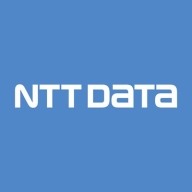

Microsoft Azure and NTT Cloud are direct competitors in the cloud services market. Microsoft Azure has the upper hand due to its extensive global reach and range of integrated services.
Features: Microsoft Azure offers a comprehensive suite of services, including AI, machine learning, and IoT capabilities, which integrate seamlessly with Microsoft products. NTT Cloud provides robust security features and specialized solutions tailored for specific industries, suitable for businesses requiring high customization and reliability in security.
Ease of Deployment and Customer Service: Microsoft Azure is known for swift deployment processes and reliable customer service, supported by extensive documentation and support. NTT Cloud offers personalized deployment assistance with a focus on enterprise-grade management and dedicated service managers, beneficial for businesses needing specialized deployment methodologies.
Pricing and ROI: Microsoft Azure generally offers flexible pricing plans that cater to a broad range of business sizes, often leading to better long-term ROI for companies using Microsoft's ecosystem. NTT Cloud, while potentially higher in initial setup costs, can deliver superior ROI for businesses benefiting from its industry-specific solutions and advanced security features, justifying the cost for those requiring tailored configurations.
| Product | Market Share (%) |
|---|---|
| Microsoft Azure | 14.9% |
| NTT Cloud | 0.8% |
| Other | 84.3% |


| Company Size | Count |
|---|---|
| Small Business | 140 |
| Midsize Enterprise | 53 |
| Large Enterprise | 148 |
Microsoft Azure integrates services and offers flexibility, ensuring compatibility with diverse environments. Its scalability, security, and cost-efficient features enhance deployment and management, making it ideal for infrastructure services and application hosting.
Azure provides a comprehensive suite of tools for application deployment, virtual machine management, and data analytics. It allows seamless integration with Power BI and offers a user-friendly interface supported by detailed documentation and technical support. Though users appreciate its capabilities, they sometimes face challenges with costs, setup, and interface complexity, alongside integration and performance issues. Frequent updates and a learning curve are also noted, though Azure's cloud-based security and scalability remain critical for disaster recovery and business continuity.
What are Azure's key features?Microsoft Azure is widely implemented in industries like financial services, healthcare, and logistics for hosting enterprise applications and vital services. Companies utilize its capabilities for IoT applications, DevOps, and Kubernetes clusters, benefiting from its cloud migrations, data analytics, and active directory support.
We monitor all Infrastructure as a Service Clouds (IaaS) reviews to prevent fraudulent reviews and keep review quality high. We do not post reviews by company employees or direct competitors. We validate each review for authenticity via cross-reference with LinkedIn, and personal follow-up with the reviewer when necessary.